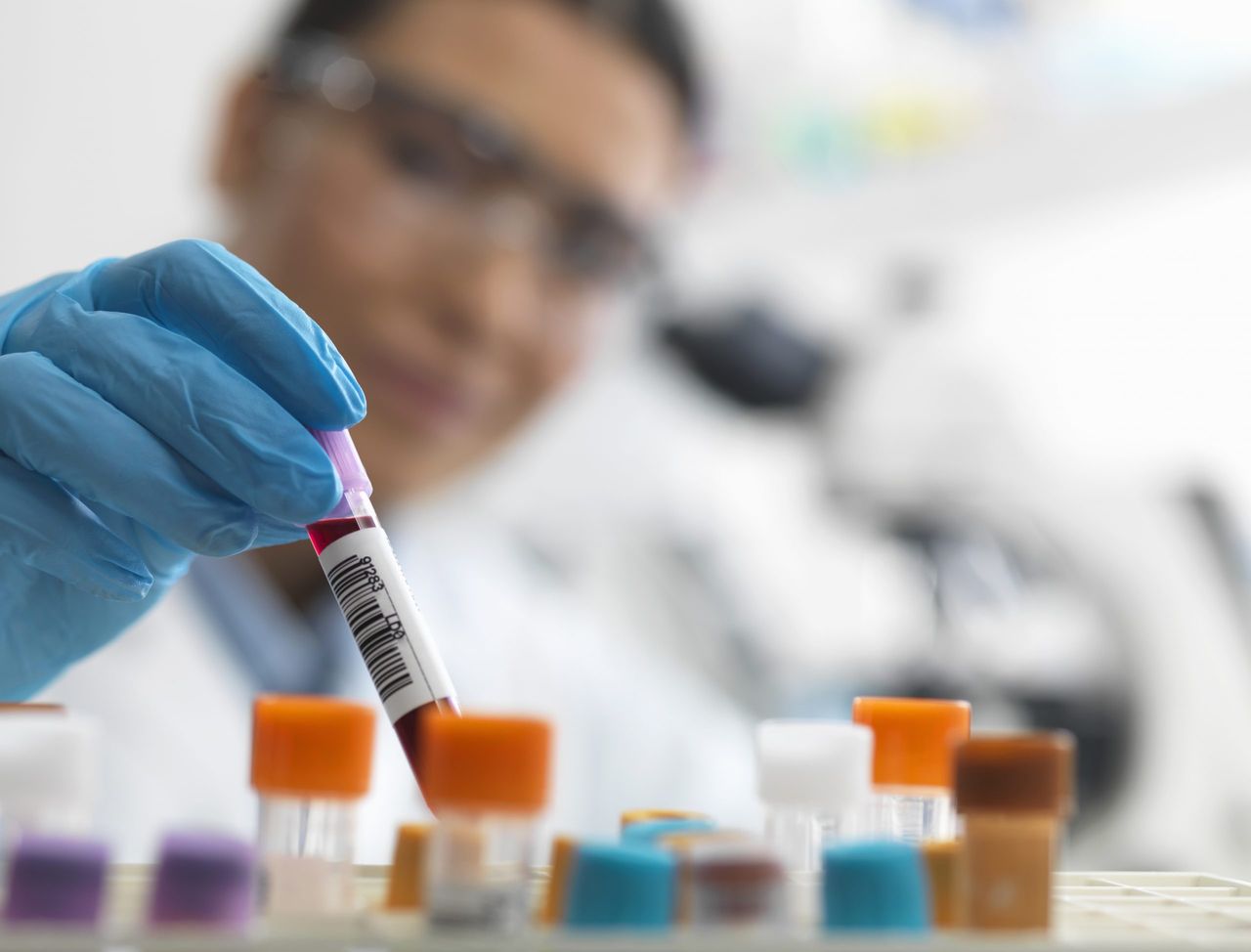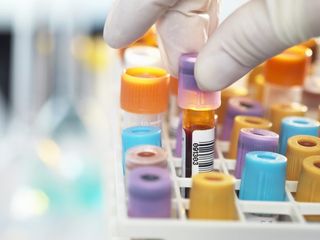New blood test can predict when a woman's menopause will begin years in advance
This is big news for women who are yet to go through the change


Scientists have claimed that a new blood test can predict when a woman’s menopause will start, up to three years before it happens.
US researchers from the University of Colorado Medical School say that the quick and easy way of testing will be able to make the guess by measuring the levels of anti-Mullerian hormone (AMH), a key menopause-causing hormone.
The test will also allow medical professionals to know how many eggs a woman has left, signifying whether the end of her fertile period of life is coming to an end.
The test results will be able to pinpoint the likelihood of someone experiencing the menopause within the following one to three years, meaning it is likely to help women with making important medical decisions.
READ MORE:Study finds that having regular sex could reduce the chances of early menopause

READ MORE:Women living in THESE areas start the menopause 16 months earlier, research reveals
Researchers analysed blood test results from 1,537 women aged between 42 and 63, and predict the new test will help women who, for instance, are considering surgery to alleviate unpleasant symptoms from problematic periods.
Sign up for the woman&home newsletter
Sign up to our free daily email for the latest royal and entertainment news, interesting opinion, expert advice on styling and beauty trends, and no-nonsense guides to the health and wellness questions you want answered.
Women suffering from heavy periods may feel reassured to know that their menstrual cycle is likely to end within a year and decide to delay surgery that would stop periods.
Similarly, women may decide to go ahead with stopping their periods voluntarily if they can know the chances of them stopping soon is low.
Scientists have also stressed how the new method is far more accurate than the traditional method of predicting menopause.

The current way uses the frequency of a woman’s period to pre-empt the start of the menopause, meaning a guess can only be made within a four-year time frame.
Researcher Dr Nanette Santoro explains, “Establishing a way to measure time to the final menstrual period has long been the holy grail of menopause research.
“Using bleeding patterns or previously available tests to predict the time to menopause can only help us narrow the window to a four-year period, which is not clinically useful.
“Women can make better medical decisions with the more complete information offered by new, more sensitive AMH measurements.”

Caitlin is News Editor for woman&home, covering all things royal, celeb, fashion, beauty and lifestyle. Caitlin started on local papers and titles such as Cosmopolitan, Now, Reveal and Take a Break while studying for her Multimedia Journalism degree. She also worked in Fashion PR as a Press Assistant for Arcadia's Topshop before becoming a part of the Now team. Caitlin went on to add the likes of Woman, GoodtoKnow, WhatToWatch and woman&home to her writing repertoire before moving on to her current role.
-
 Caught ending explained: Who was the killer and is Leo dead?
Caught ending explained: Who was the killer and is Leo dead?Another Harlan Coben thriller is riding high on Netflix, and viewers are asking for a deep dive of the intense ending of Caught
By Lucy Wigley Published
-
 Chocolate brown is everywhere but Ranvir Singh's Reiss sale dress stands out from the crowd
Chocolate brown is everywhere but Ranvir Singh's Reiss sale dress stands out from the crowdRanvir Singh has made us fall in love with deep cocoa brown all over again and her Reiss midi dress is more than 50% off
By Emma Shacklock Published
-
 5 sexperts share their secrets to better sex for mature women
5 sexperts share their secrets to better sex for mature womenThese women know how to put the va-va-voom back into the bedroom… possibly even the kitchen! Here's what we've learned from them
By Kim Willis Published
-
 Can menopause cause a loss of taste and smell? Plus, 6 other signs of menopause you might not expect
Can menopause cause a loss of taste and smell? Plus, 6 other signs of menopause you might not expectCan menopause cause a loss of taste and smell? It's more than just colds and flu that can change our tastebuds
By Emily Smith Published
-
 The health benefits of protein powder for women, according to a nutritionist
The health benefits of protein powder for women, according to a nutritionistWe've got the scoop on the benefits of protein powder when it comes to your health
By Lucy Gornall Published
-
 Wondering if you're postmenopausal? These are 9 ways your body changes post-menopause
Wondering if you're postmenopausal? These are 9 ways your body changes post-menopauseThese are the body changes you can expect if you're postmenopausal
By Lauren Clark Published
-
 Can you get pregnant during perimenopause? Here’s how your fertility changes from your 40s
Can you get pregnant during perimenopause? Here’s how your fertility changes from your 40sIf you’re wondering can you get pregnant during perimenopause, we’ve got the expert verdict
By Lauren Clark Published
-
 What are the main menopause symptoms? Find out the signs and when to see your doctor
What are the main menopause symptoms? Find out the signs and when to see your doctorA team of experts outline common menopause symptoms and how to deal with them
By Stacey Carter Published
-
 Here's how to tell whether you're experiencing menopausal weight gain—and what to do about it
Here's how to tell whether you're experiencing menopausal weight gain—and what to do about itIf menopausal weight gain is knocking your confidence, this is everything you need to know...
By Lauren Clark Published
-
 How to calm down hot flushes if you are going through the menopause
How to calm down hot flushes if you are going through the menopauseHot flushes are thought to be caused by hormonal fluctuations—these are the best ways to ease them...
By Lauren Hughes Published